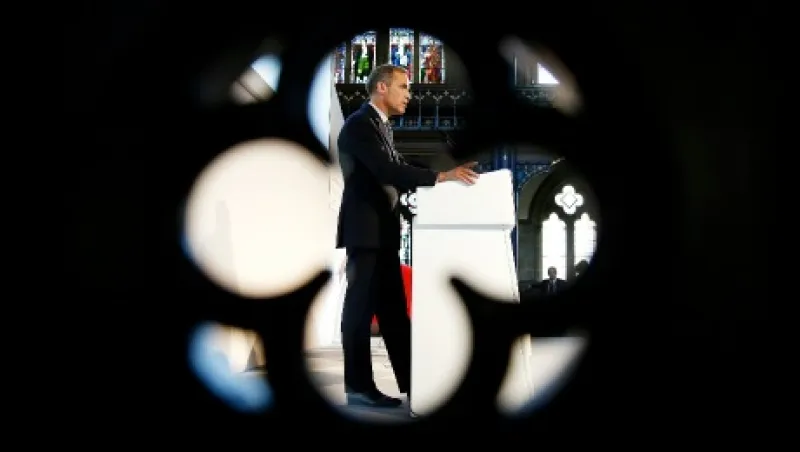The theme of today’s pre-U.S. market opening is “growing up is hard to do.” Chinese data from July suggested further moderation in activity levels, as the world’s second-largest economy matures away from its breakneck production-based growth towards internal consumption. In the U.K., as Bank of Governor Mark Carney was discussing the conclusion of accommodative policy, reporters sent him a wave of antagonistic questions that suggested that the central bank has missed the boat and that the U.K.’s recovery cycle is now so far along that the risk of inflation has become significant. In the U.S., market strategists, analysts and pundits continue to join the chorus in calling for an end to a bull market for equities that, after five years, is beginning to show its age. Taken in aggregate, as the end of the year comes into view, the potential end of a confluence of financial and economic cycles points to a palpable lessening of near-term expectations for investors.
The pace of production moderates in China. July industrial production levels published by China’s Bureau of Statistics today registered in line with expectations at 9 percent year-over-year, moderately weaker than the numbers for June. Separately, both retail sales and new loan data for the month registered softer than expected. Sales at the cash register came in at 12.2 percent higher than July 2013, compared to consensus forecasts for 12.4 percent. People’s Bank of China credit data showed 273 billion yuan ($44.3 billion) in new loans. This is a six-year low and a sharp drop from June levels. In an accompanying statement, PBOC officials downplayed the significance of this contraction, noting that it comes after months of surging lending. Policymakers at the central bank have publicly raised concerns about loose lending practices in recent months. Some analysts are concluding that the pullback in new loans may reflect a crackdown on some risky practices at primary banks, in addition to lower demand.
Carney eyes inflation. The Bank of England inflation issued its quarterly report this morning with a clear message that, as consumer inflation nears the Monetary Policy Committee’s 2 percent target threshold, gradually paced tightening is on the horizon. The bank also raised its 2014 GDP projection from 3.4 to 3.5 percent. In prepared remarks, Bank of England Governor Mark Carney laid out the case for this shift, noting that rate of improvement in labor markets in the U.K. has exceeded the bank’s projections made earlier this year. Carney faced a number of aggressive questions from media outlets during the accompanying press conference.
Japanese GDP growth still sluggish. Numbers released today brought Abenomics under the microscope, which showed second-quarter gross domestic product contracting by an annualized 6.8 percent for the period. This level was slightly better than consensus forecasts, but still constitutes the weakest level achieved since the first quarter of 2011, just after the Fukushima earthquake disrupted the nation’s economic activity. Both Abe’s administration and policymakers at the Bank of Japan continue to project a rebound in coming quarters, as the private sector digests recent tax increases.
Second-quarter earnings season continues. Large-cap U.S. companies reporting second-quarter 2014 earnings today include Cisco Systems, Deere & Co. and Macy’s. The reporting season is winding down: 90 percent of S&P 500 constituents have reported for the quarter, with the index on track to exceed the same quarter last year by a high single-digit measure in aggregate.
Portfolio Perspective: Not Dull — Robert Savage, CCTrack Solutions
The global focus on Russia has left Europe waiting for the United Nations and the Red Cross to diffuse the increasing worry about a backdoor resupply of Ukrainian rebels or another excuse for invasion for Putin. This story just won’t go away — even though most investors seem to be beyond the point of caring too much. The present market thus remains one of low volume and low conviction but certainly not dull. The fear and loathing of politics, economics and corporate deal-making has led to a set of market ranges larger than we have seen during the past few months. The risk reward of catching a falling knife is clearly negative in this environment, despite this being precisely what we have been trained to do by central banks’ interventionist policies. The balance rests on figuring out what bevel is left on the proverbial knife in a world battered with overwhelmingly negative news. Today’s headlines include Japan GDP and U.K. jobs. The risk of more dreary data is leaving us fearing the sharpener.
Robert Savage is the CEO of CCTrack Solutions, a New York–based hedge fund firm. CCTrack is backed by Citic Capital Holdings, which in turn is backed by the sovereign wealth funds of China and Qatar.






